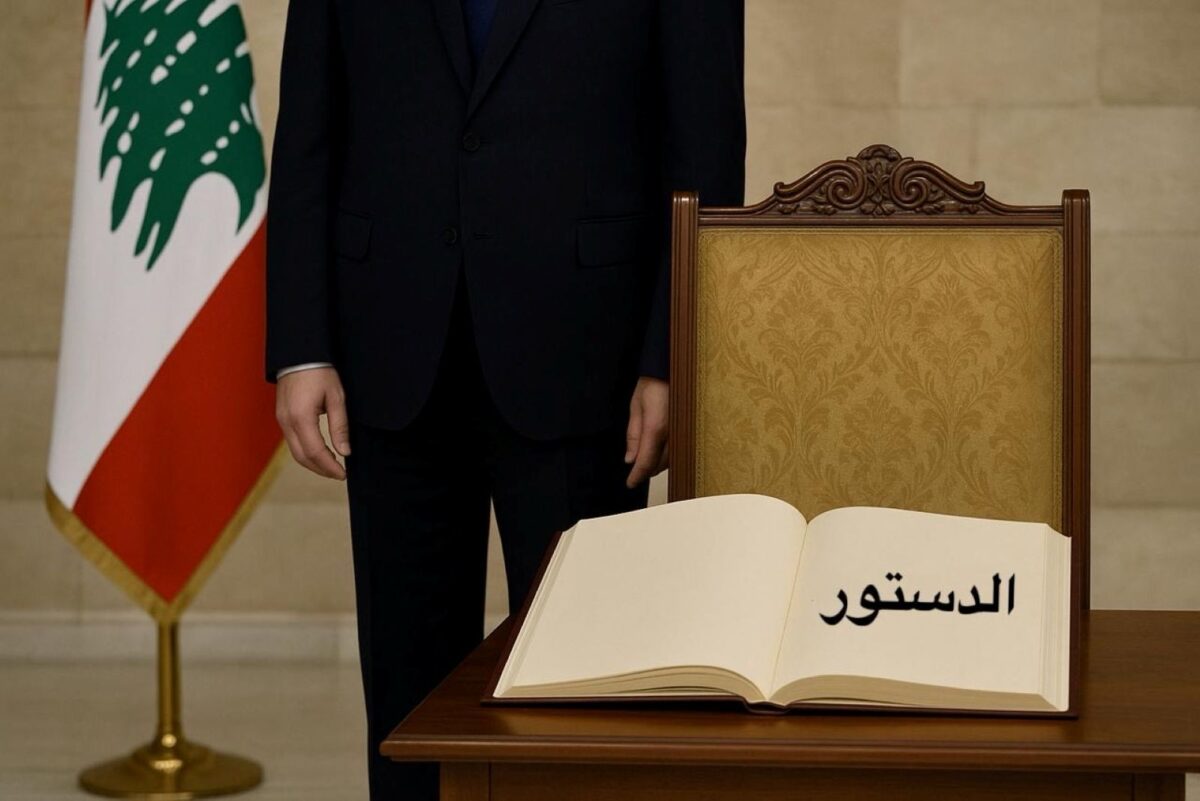
In Lebanese official ceremonies, protocol dictates that the chair of the President is placed ahead of those of the Prime Minister and the Speaker of Parliament. This symbolic precedence is meant to embody the “unity of the nation” through the seniority of the presidency. Yet, this symbolism has rarely been innocent. It has often served as an arena of petty battles over form rather than substance, mirroring the Lebanese system itself—founded on sectarian quotas and hollow symbols.
My late mentor , the great historian Kamal Salibi, once recounted an anecdote that captured this absurdity. At a state occasion, Prime Minister Saeb Salam deliberately placed his chair next to that of President Suleiman Frangieh, signaling equality between the two heads of the executive branch. Frangieh did not protest, but his piercing look said enough. At the next ceremony, Salam discovered his chair nailed to the floor a step behind the President’s—an unmistakable message that equality was intolerable, and that the Maronite President’s precedence over his Sunni partner was a red line.
For Salibi, this was not simply a story about chairs. It was a parable of Lebanon’s political class: leaders more invested in the positioning of furniture than in the building of a state. These petty rituals reflect the deeper structural flaw in Lebanon’s executive authority, where national partnership is reduced to sectarian choreography.
Fast forward to today, and little has changed. The current tensions between President Joseph Aoun and Prime Minister Nawaf Salam echo the same logic, albeit with different tools. The presidency clings to symbolic precedence, while in practice it is the Prime Minister who has taken the bolder stand on sovereignty. Most tellingly, Salam has faced smear campaigns from Hezbollah and Amal, accused of treachery simply for articulating a national position against the illegitimacy of armed militias. His greatest handicap is the silence—or worse, the equivocation—of his constitutional partner, the President.
When Aoun was first elected, his inaugural speech stood out for its clarity and resolve. But today, that oath reads like ink written in disappearing ink. His most recent appearance on the UN stage only deepened the sense of drift: while Syrian President Ahmad al-Sharaa projected a calculated diplomatic comeback, Lebanon was virtually absent, its president delivering a speech devoid of urgency or purpose. The international takeaway was clear: Lebanon is led by a man with some respectable traits, but without the courage to confront the defining issue of sovereignty—Hezbollah’s weapons.
What makes this more dangerous is the missed opportunity of the past year. Israel’s campaign, intentionally or not, dismantled large parts of Hezbollah’s military infrastructure and punctured its mythology of invincibility, even among the Shi’a base. This could have been the historic moment to pivot toward a new social contract built on one army, one state, and one sovereign decision. Instead, the President has opted for denial, letting the moment slip away.
Even on the symbolic plane, the signs are troubling. The spectacle of “lighting the Raouche Rock” was less a patriotic celebration than a circus staged by an outlaw faction masquerading as a religious movement. These groups cloak themselves in the legacy of Imam Ali, yet their true face is embodied by Hezbollah’s enforcers and smugglers. Similarly, awarding a medal to the new army commander within months of his appointment only diluted the military’s credibility, suggesting complicity rather than independence.
The arrest of Sheikh Abbas Yazbek at Beirut airport underscored the rot. This was no routine judicial act, but an act of intimidation against a cleric critical of Hezbollah from within its own community. That state institutions can be weaponized to humiliate dissenters—under official seals and signatures—exposes the fusion of party and state. Here the president cannot plead lack of jurisdiction. The man who once told the world that the military tribunal was outside his mandate is today the guardian of the constitution. His silence in the face of such abuses signals not protection of the law but surrender to expediency.
The central lesson is simple: the presidency is not a chair fixed to the ground. It is the living constitution, embodying sovereignty. The constitution does not rank chairs or enshrine sectarian privileges; it guarantees equality and the rule of law. Lebanon will not be restored by empty rituals or protocol, but by institutions that enforce accountability and a president who embodies sovereignty instead of hiding behind symbols.
For in the end, no chair—however firmly nailed to the floor—can support a state that crumbles beneath it. A President who defends the seat but neglects the constitution ensures only collapse. In Lebanon, there is no superiority of one office over another, no authority beyond the constitution.
Originally meant for Nidaa al-Watan, this article appeared in AL Rai
Makram Rabah is the managing editor at Now Lebanon and an Assistant Professor at the American University of Beirut, Department of History. His book Conflict on Mount Lebanon: The Druze, the Maronites and Collective Memory (Edinburgh University Press) covers collective identities and the Lebanese Civil War. He tweets at @makramrabah







